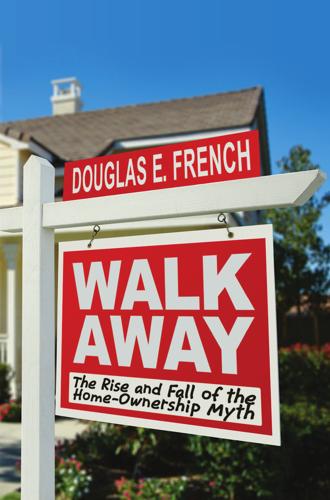
Walk Away
by
Douglas E. French
Published 1 Mar 2011
But if it’s close to being right, the number is a fraction of the 11 to 15 million homes estimated to be under water right now. It is a wonder that the foreclosure filings are not double or triple what are currently being filed. Government has built a huge stake in the housing market since before the Great Depression, starting with Herbert Hoover’s “Own Your Own Home” initiative. Government has standardized suburban living through its mortgage guarantee guidelines. Government has provided the secondary markets to make 30-year mortgages and the securitization of those loans possible. Owner-occupied housing not only provides employment, but each homeowner has a stake in their community and their country.
…
So, there were typically only two types of homeowners; the wealthy who paid cash and working folks who built their own homes. As Thomas J. Sugrue, history and sociology professor at the University of Pennsylvania points out, “even many of the richest rented—because they had better places to invest than in the volatile housing market.” But after WWI, the federal government launched an “Own Your Own Home” campaign with the objective being to “defeat radical protest and restore political stability by encouraging urban workers to become homeowners,” Weiss writes. In his book American Individualism, Herbert Hoover defined individualism stripped of the “the laissez faire of the 18th Century.” but instead viewed American individualism as Abraham Lincoln’s “ideal of equality of opportunity” and “fair division can only be obtained by certain restrictions on the strong and dominant.”
…
Disturbed that the 1920 census reflected a decline in home ownership, “Hoover offered a vigorous, new approach to the housing problem through the application of federal, voluntary, and business cooperative activity,” Janet Hutchinson writes in “Building for Babbitt: The State and the Suburban Home Ideal.” At Hoover’s direction the federal government threw its weight behind four organizations to promote home ownership: the commercial “Own Your Own Home Campaign” and Home Modernization Bureau, the nonprofit Better Homes in America Movement, and the professional Architect’s Small House Service Bureau. This concentrated effort served to foster, as Hutchison points out, “an idealized vision of American home life rooted in the ownership of a suburban residence replete with modern amenities.”
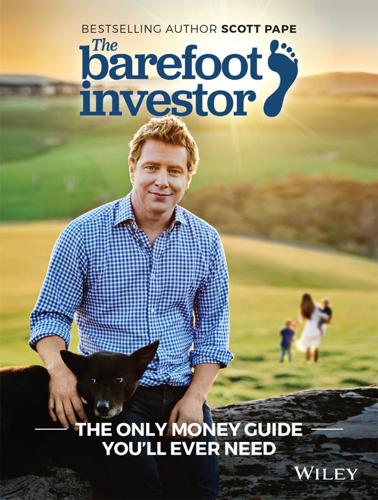
The Barefoot Investor: The Only Money Guide You'll Ever Need
by
Scott Pape
Published 22 Nov 2016
The truth is that housing in most parts of the country is ridiculously expensive. The Economist magazine has labelled the Aussie housing market the biggest financial bubble in history. And yet, regardless of what prices do in the short term, I still passionately believe that owning your own home is one of the best financial decisions you'll make. Why? Well, owning your own home is like a 30-year forced savings plan — and any gains you make over that period are tax free. Yet buying a home isn't just a financial decision, it's an emotional one. After all, it's where you'll raise your family. It's your castle. The day I bought my first place was one of the proudest moments of my life.
…
At any stage of the game — regardless of your educational level, upbringing or age — you can decide to leapfrog the pettiness of people to achieve your goals. When you make a commitment and have the courage to stick with it through thick and thin, you'll double your income — and more. Over to you. STEP 4 BUY YOUR HOME You can use your buckets to save up a deposit — fast! I still believe in the Great Australian Dream of owning your own home. However, I've also seen the dream become a nightmare for many first home buyers, who catch Hills Hoist envy and take on too much debt. So next we'll cover the practical realities of making the biggest purchase of your life: Should you wait for the housing market to crash before you buy?
…
In the real world there are off-spreadsheet factors, one being that as a renter you don't have the security of tenure. And that extra cash can easily be frittered away, especially if you move every 12 months or so. Mistake #5: They don't consider other options There are options if you really want to own your own home. You can move into the city: A few years back I made a bold prediction that inner-city apartments (especially in the Melbourne CBD) would be selling at fire-sale prices within the next few years. Even as I write this, brand-new off-the-plan apartments are selling at steep losses in many parts of the country as the oversupply of apartments starts to bite.
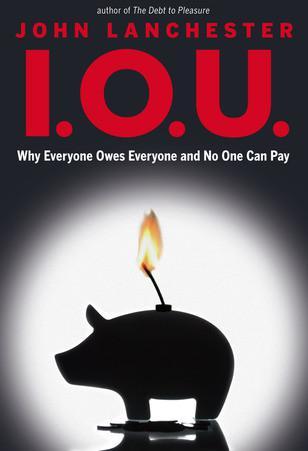
I.O.U.: Why Everyone Owes Everyone and No One Can Pay
by
John Lanchester
Published 14 Dec 2009
The broad distinction is that in some countries, home ownership is regarded as a good thing but not an essential. If you can afford it and if you prefer owning to renting, then by all means own your own home. If you can’t afford it or temperamentally don’t want to be tied down by a long-term, highly leveraged, highly illiquid investment, then so what, you rent. In other countries, however, home ownership is an unquestioned primary good. It implies safety, prosperity, full participation in society. Owning your own home could almost be seen as a fundamental right. It follows that in these countries, governments will pursue policies designed to increase home ownership.
…
He’s trying to save his money to that he can get an apartment, but it takes time to get on his feet, it’s probably going to take him another month or two. He’s not looking to live in the Taj Mahal, he just wants a one-room apartment. So that’s it. If they’re lucky they get taken in by relatives, or they find a cash job and a renter who’ll take them in for cash. But mainly, nobody knows.” And that’s where the dream of owning your own home, combined with innovative new financial derivatives, has brought us. This is the other end of the causal chain behind the bank collapses and the seizing up of credit. It’s easy to lose money in the housing market. I’ve done it myself. One of my most vivid memories of the late-1980s property bubble was how insanely boring it made so much conversation.
…
In practice, most of us own our home through a mortgage, which means that we don’t own our home at all. Back in the days of my first flat, you didn’t even hold the property deed of your own property if you had a mortgage: the bank held the deed. There was something brutal about that, but at least the point was stark: if you have a mortgage, you don’t own your own home, and it’s a good idea to remember the fact. If you have a mortgage, though, your life is in thrall to a number: the interest rate. In continental Europe, policy wonks and bankers care what the interest rate is, but no one else does. Here, the interest rate has the potential to dominate your life.
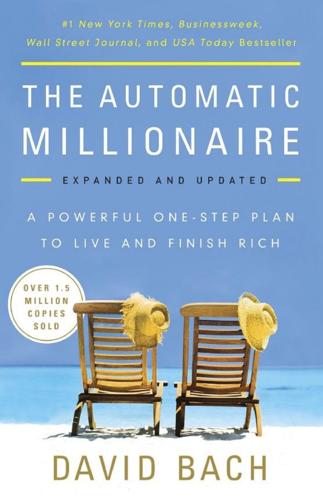
The Automatic Millionaire, Expanded and Updated: A Powerful One-Step Plan to Live and Finish Rich
by
David Bach
Published 27 Dec 2016
Of all the secrets to financial security that I share in this book, there are three that stand out in terms of importance and effectiveness. The first is to decide to Pay Yourself First 10 percent of your pretax income. The second is to Make It Automatic. The third is to… BUY A HOME AND PAY IT OFF AUTOMATICALLY In this chapter, we’re going to look at why you should own your own home—and even more important, how you can pay for that home automatically so you can be debt-free before you’re too old to enjoy it. So let’s get started. Young or old, you want to own the place you live in. Why? It’s simple. You can’t get rich renting. As the old saying goes, landlords get rich and renters stay poor.
…
As a renter, you can easily spend half a million dollars or more on rent over the years ($1,500 a month for thirty years comes to $540,000), and in the end wind up just where you started—owning nothing. Or you can buy a house and spend the same amount paying down a mortgage, and in the end wind up owning your own home free and clear! The fact is, you aren’t really in the game of building wealth until you own some real estate. THE FIRST LANDLORD YOU SHOULD BECOME IS YOUR OWN Study after study has shown that people who own their own homes wind up with an average net worth many times greater than that of those who rent.
…
The higher your tax bracket, the more the government is helping you buy a home. If you are in the 30 percent tax bracket, the government is basically subsidizing almost a third of your mortgage payment (particularly in the early years, when most of your monthly payment goes to pay interest). 5. Pride of Ownership. When you own your own home, you own a piece of the American Dream. You put down roots, become part of a community, and enjoy the sense of pride that comes with ownership. This is more than just a warm, fuzzy feeling; it’s something that gives you and your loved ones a real sense of security. 6. Real Estate Has Proven to Be a Great Investment.
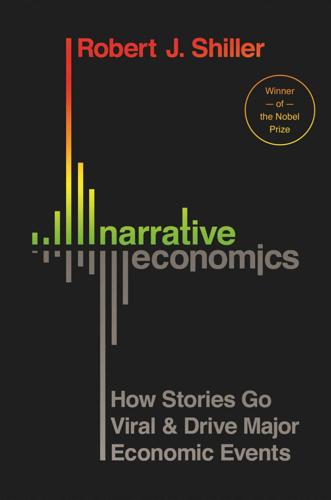
Narrative Economics: How Stories Go Viral and Drive Major Economic Events
by
Robert J. Shiller
Published 14 Oct 2019
The History of Homeownership Promotion In another element of the real estate narrative, history shows a succession of advertising promotions for homeownership itself, not just for the sale of individual properties. In the United States, these promotions began with the “Own Your Own Home” campaign, launched by real estate agent Hill Ferguson in 1914 under the auspices of the National Association of Real Estate Boards (precursor to the National Association of Realtors today). The Own Your Own Home campaign, like the savings and loan association movement that preceded it in the United States and the even earlier building society movement in the United Kingdom and Europe, was an attempt to help people build up some savings. The Own Your Own Home campaign set out to change the widespread presumptions that borrowing is disreputable or dangerous, that people should never go into debt, and that they should accumulate savings to buy a home with an all-cash offer.
…
Bush heavily used the slogan “Ownership Society” during his 2004 reelection campaign. The slogan was a variation on the American Dream theme; Bush was calling attention to a society that respects ownership and in which people “take ownership”—that is, take responsibility for themselves. He said in 2002, “Right here in America if you own your own home, you’re realizing the American Dream.” He spoke of the good feelings homeownership lent: “All you’ve got to do is shake their hand and listen to their stories and watch the pride that they exhibit when they show you the kitchen and the stairs.”46 Controlled experiments have shown that marketing of consumer products may be enhanced by appeals to patriotism.47 By attaching the term American Dream to moral rectitude and to patriotism, this narrative epidemic probably raised the homeownership rate in the United States, as well as stimulating business in general.
…
In the earliest part of the twentieth century, people didn’t think of saving for retirement, as they in many cases did not think they would live long enough to spend much time in retirement. Rather, savings were put aside as a safety measure against illness or other misfortune. The savings bank movement and the Own Your Own Home movement were a moderate success. The homeownership rate rose, and even today low-income people in the United States and other advanced countries tend to have some savings, mostly in the form of home equity. Next came the Better Homes in America movement launched in 1922 by Marie Meloney, the editor of a woman’s magazine, the Delineator.
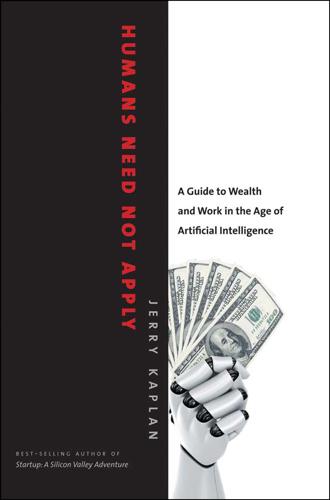
Humans Need Not Apply: A Guide to Wealth and Work in the Age of Artificial Intelligence
by
Jerry Kaplan
Published 3 Aug 2015
One ongoing example is the push to encourage homeownership in the United States. Studies over time, not to mention common sense, suggest that communities where people own their own homes are safer, more stable, and attractive to investment.7 As far back as 1918, when the U.S. Department of Labor started a campaign called Own Your Own Home, federal and state governments have promoted this goal with tax policies, regulation of financial institutions, and direct support for homeowners.8 As President Johnson said in his proposal to create the Department of Housing and Urban Development (HUD) in 1968, “Home-ownership is a cherished dream and achievement of most Americans.
…
See machine learning neurons, 23, 27, 29 programmable, 24 New York Times, 170 Occupy Wall Street, 170 oil spill (2010). See BP oil spill online sales, 7, 90, 136, 177–78, 181–82 advertising and, 64–76, 132 employment effects of, 139–40, 142 product reviews and, 55, 143. See also Amazon Onsale.com, 96 Oracle, 114–15 OSHA (Occupational Safety and Health) rules, 37 Own Your Own Home program, 168 Oxford University, 152 Pandora, 16 paralegals, 148 part-time work, 185 pattern recognition, 25, 55 payroll taxes, 14, 154 PBI. See public benefit index Pearson, Harry, 193 pension funds, 12, 14 Perlman, Steve, 127 personal public transit. See autonomous vehicles personhood, 90, 215n9 corporations vs. synthetic intellects, 199–200 persuasion, 70, 136 pharaoh (ancient Egypt), 115–16 philanthropy, 58, 113, 118–19 phonograph, invention of, 192 pictures: AI recognition of, 39 website links to, 65 pixels, 65, 66 pollution reduction, 168, 195 poverty, 3, 12, 15 preceptrons (programmatic neurons), 24 prepaid cell phone cards, 55 prices: advertising space bids, 69, 70, 71 Amazon practices, 97–105 automation effects on, 73, 132 comparison of, 14, 54, 100–101 public-interest systems and, 56 stock fluctuations (see stock markets) Princeton University, 113 productivity, 12, 132, 136 professions, 11, 145–46, 157 professors, 11, 151 profits, 55, 72, 103 progressives, 163–65 prostitutes, 40, 144–45 protein folding research, 58 psychopaths, 79–80 public benefit index (PBI), 14, 15, 180–81, 182 public interest, 56, 163–65, 169, 178 public service, 58, 114, 184, 185 public transit.
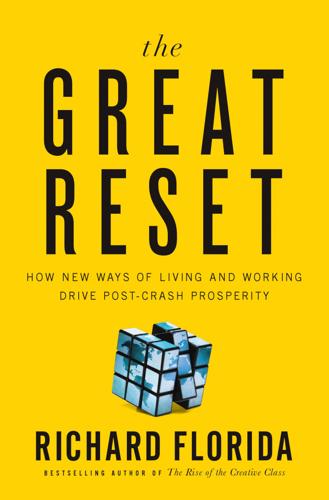
The Great Reset: How the Post-Crash Economy Will Change the Way We Live and Work
by
Richard Florida
Published 22 Apr 2010
Before we can nurture the new industries of the future, develop new forms of health care and biotechnologies, or even explore new forms of education or more experiential forms of entertainment and recreation, we first have to free up capital by producing the goods of the old industrial order more cheaply and efficiently. We’ve reached the limits of what George W. Bush used to call the “ownership society.” Owning your own home made sense when people could hope to hold a job for most or all of their lives. But in an economy that revolves around mobility and flexibility, a house that can’t be sold becomes an economic trap, preventing people from moving freely to economic opportunity. Not only has that piece of the American Dream grown dark, but it’s also clear that financial excess in the housing sector was one of the central causes of the economic crisis.
…
The percentage of Americans owning their home increased from 27 percent before 1920 to 45 percent by 1950, reaching more than 60 percent during the 1960s—the exact year my working-class parents bought a suburban home of their own.6 For my immigrant grandparents and their peers, the American Dream meant one thing: economic opportunity. But the Second Reset redefined and broadened that dream, making owning your own home a central part of it. Most of all, home ownership radically transformed the way people consume. The amount of money the average family spent for food fell from almost half at the turn of the twentieth century to a third in 1950 and less than a fifth by the mid-1980s. Spending on basic needs—that is, food, shelter, and clothing combined—declined from more than three-quarters of family budgets at the turn of the century to less than half by 1960.
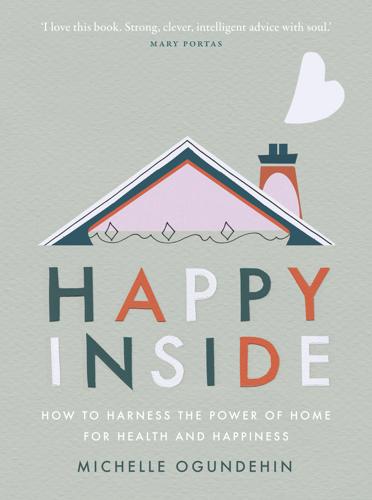
Happy Inside: How to Harness the Power of Home for Health and Happiness
by
Michelle Ogundehin
Published 29 Apr 2020
CLEARING THE WAY The solution to a home that no longer seems to meet our needs is almost always thought to lie in an upgrade of some sort: more rooms, a larger garden, an extended kitchen. And while sometimes a few architectural interventions can indeed make a significant difference to the way you live, what if you don’t own your own home or you can’t afford to move or make extensive renovations? Besides, believing more is always the answer only reflects the pervasive conviction that a newer, bigger, faster, updated whatever must be better. This is nothing more than marketing, often based on a model of built-in obsolescence, which can blind us to the opportunities of the here and now.
…
ALWAYS START WITH YOUR FLOORING Whether you want your home to be relaxing, calm or invigorating, always start with your floor, then follow with the colours for your walls and know that everything will flow from there. This is because floors are often overlooked, or left until last, whereas they should be one of the very first things you think about, as they will be in your eyeline from all viewpoints, underpinning everything in your home both visually and quite literally. Plus, if you own your own home, it’ll be one of your biggest investments, so better to get this sorted before you buy anything else, on the premise that you can sit on a cardboard box on a wonderful floor and it will look magnificent, but anything on a cheap floor will be instantly, and permanently, compromised. Of course that’s a dilemma if you can’t afford to install a new floor, or if you rent and have a hideous carpet or faux laminate in situ to contend with.
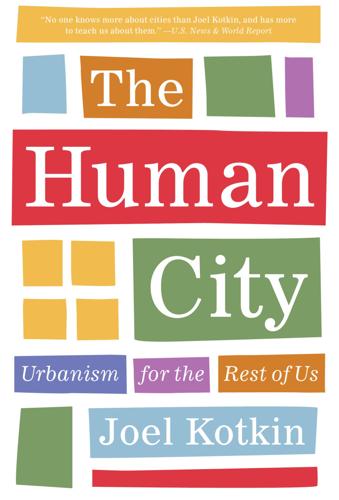
The Human City: Urbanism for the Rest of Us
by
Joel Kotkin
Published 11 Apr 2016
A 2012 study by the Joint Center for Housing Studies at Harvard found “little evidence to suggest that individuals’ preferences for owning versus renting a home have been fundamentally altered by their exposure to house price declines and loan delinquency rates, or by knowing others in their neighborhood who have defaulted on their mortgages.”75 A 2013 survey by the University of Connecticut found that 76 percent of those polled believe that being able to own your own home is necessary to be considered middle class.76 THE GLOBALIZATION OF DISPERSION Suburbanization is now a global phenomenon. In Tokyo, like other large cities, the movement to the suburbs began with the expansion of commuter railways, most of which were privately owned. Some Tokyo suburbs were designed, at least in part, with notions borrowed from planner Ebenezer Howard’s “garden cities” concept.
…
In the last half century, that has changed radically.109 Edgardo Contini, a prominent Los Angeles architect and planner, observed in the 1960s: The suburban house is the idealization of every immigrant’s dream—the vassal dream of his own castle. Europeans who come here are delighted by our suburbs, even by the worst sprawl. Not to live in an apartment! It is a universal aspiration to own your own home.110 Contini, for one, would not have been surprised that the fastest growth in immigrant populations now overwhelmingly takes place in the suburbs; between 2000 and 2013, suburbs accounted for three-quarters of the growth among newcomers.111 More than 40 percent of non-citizen immigrants now move directly to suburbs.112 For minorities, notes a study by Arizona State University geographer Deirdre Pfeiffer, the fastest integration into the middle class and American norms comes in the most disdained geography of all—the farthest-flung, newly minted suburbs.
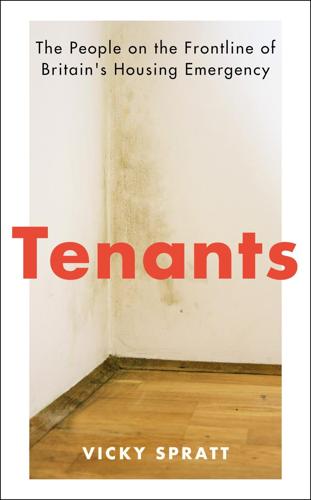
Tenants: The People on the Frontline of Britain's Housing Emergency
by
Vicky Spratt
Published 18 May 2022
The Chancellor’s support package made no mention of financial assistance for anyone who lost their job and fell into rent debt to their landlord as a result, but instead a flimsy suggestion that landlords – who could access mortgage holidays – should be ‘flexible’ and ‘negotiate’ with renters whose finances were damaged. That is how Anthony – like many others – found himself caught in the crosshairs of two social and economic disasters: a global pandemic and a housing emergency. If you do not own your own home in Britain, precarity is a fact of life. It comes in the form of rent rises, eviction notices and knowing that, ultimately, your landlord has control over the one place in the world you should feel safe. Banking on Housing My grandparents, though they had the chance to, didn’t buy their flat in Dorrington Court through Right to Buy.
…
There’s so much stigma about not having money that, ironically, you spend money you don’t have to appear as though you do, and time you could spend on other things worrying about it. From where I stand, no policy area has reinforced or rejuvenated Britain’s wealth-based class system as much as housing. You can do everything right and it doesn’t necessarily mean you will ever own your own home. House prices are now so high, whether you attain the social ‘success’ of becoming a homeowner has much less to do with traditional class markers (such as whether you went to university or do a ‘skilled’ job) and much more to do with what your parents have in terms of actual assets on which they can draw.
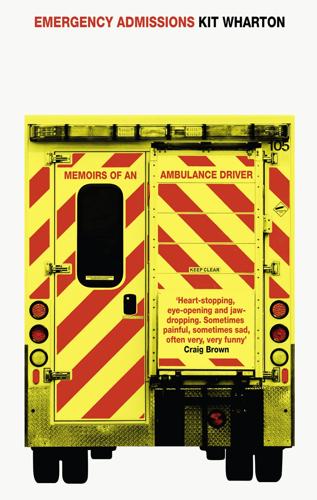
Emergency Admissions: Memoirs of an Ambulance Driver
by
Kit Wharton
Published 9 Feb 2017
They don’t want to put her through needless suffering, or waste treatment on someone who has little quality of life or is going to die anyway. The doctors stand at the bottom of the bed, staring at her, firing questions. They haven’t introduced themselves. She sits there, naked from the waist up, covered in wires, terrified. —Do you own your own home? —Do you get out much? —Do you see much of your friends? —Do you do your own shopping? Our lady is now confused and baffled as well. No one makes any attempt to cover her up, so I go back to the bed with a blanket to keep her warm and try and reassure her. Then I answer some of the doctors’ questions for her, making sure I give the right answers, since she – thank God – doesn’t realise these shouted questions might decide her fate.
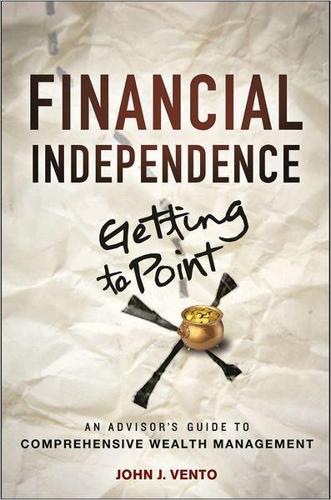
Financial Independence
by
John J. Vento
Published 31 Mar 2013
Americans currently reaching retirement age—the infamous Baby Boomers—have not planned or saved adequately for retirement. Somehow over the last several decades—I believe since the end of World War II—many people in our society have come to believe many incorrect notions about money. These financial myths include such ideas as: • • • • “Owning your own home is everyone’s right.” “The real estate market will always rise.” “You can live ‘large’ on credit and never pay any consequences.” “If you need to work, you can always find a job.” These myths—a warped conception of the American Dream— exploded in a puff of smoke in 2008. (In fact, they were eroding for many years, but most people failed to heed the warnings.)
…
Sooner or later, you will run out of money, and you will find yourself in even worse financial shape.) Other Surprising Resources for Reducing Debt If you do not want to raid your savings or money-market accounts, you can consider other potential resources for putting your out-ofcontrol credit-card debt back in line. Here are a few suggestions. Take Out a Home-Equity Loan If you own your own home and have sufficient equity, you might want to consider taking out a home-equity line of credit and using it to pay off your credit-card debt. A homeequity loan helps you in several ways. First, by using the loan to pay down the debt, you are trading 18 to 20 percent interest (on your c04.indd 77 26/02/13 2:42 PM 78 Financial Independence (Getting to Point X ) credit cards) for 5 to 6 percent interest (on the home-equity loan).
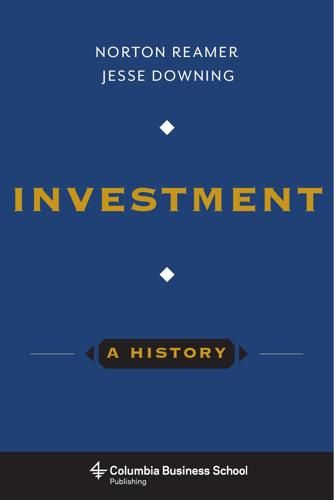
Investment: A History
by
Norton Reamer
and
Jesse Downing
Published 19 Feb 2016
Encouraging homeownership has long been a political priority in this country because of the belief that homeowners are intrinsic stakeholders in society and that growing this group enhances the social stability and economic aspirations of citizens. As early as 1918, the Department of Labor undertook an “Own Your Own Home” campaign, and in public-private partnership thousands of Better Homes committees promoted the advantages of home ownership in the 1920s.1 However, the government was most effective in encouraging home ownership through the promotion of financial innovation in three different phases, leveraging the power of finance to accomplish this social and political goal.
…
See New York Stock Exchange NYSE Euronext, 95 NYSE Regulation Inc., 180 Obama, Barack, 218, 225 Oeconomicus (Xenophon), 18 Ohio National Bank, 81 oil: crisis, 143; dealers, of Oyamazaki, 45; prices, 114 Oksanen, E. H., 207 operating foundations, 127–28 options pricing, 235–36, 237 Oregon Investment Council, 296 orphans’ funds (Jianjiao-ku), 29 Ottoman Empire, 52, 55 ousiai (estates), 21 Over the Counter Bulletin Board, 180 “Own Your Own Home” campaign, 321 “Own Your Share of American Business” campaign, 92 Packard Motor Car Company, 111 pairs trading, 267 Pajcin, David, 187–90 Panama Canal, 90 Panel on Takeovers and Mergers, 182 Panic of 1792, 177 Panic of 1907, 200, 204 Paris, stock market in, 85 Pasion, 25–26 Paulson, John, 266 pawnshops, 30–31 P/E.
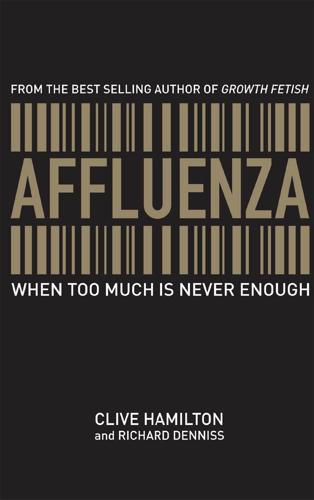
Affluenza: When Too Much Is Never Enough
by
Clive Hamilton
and
Richard Denniss
Published 31 May 2005
This is why the emerging group of downshifters—people who have voluntarily reduced their income—is so important. Each downshifter has, so to speak, put their money where their mouth is. The defenders of consumerism—the advertisers and the neoliberal commentators, think-tankers and politicians—repeat the comforting stories. It’s good to aspire to own your own home, surround yourself with nice things, look after the needs of your children, and save for your retirement. Yes, we are lucky that in a 17 AFFLUENZA rich country such as Australia many of us can do these things, but most people reach a point in their lives, some at eighteen and some at 88, when they ask, ‘Work, buy, consume, die: is that all there is?’
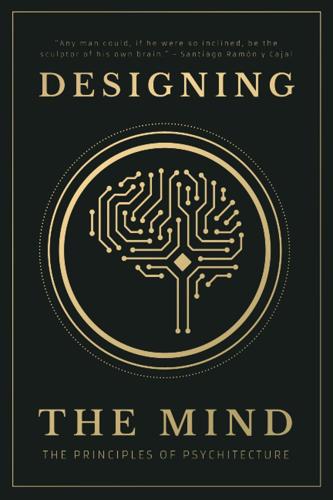
Designing the Mind: The Principles of Psychitecture
by
Designing The Mind
and
Ryan A Bush
Published 10 Jan 2021
In order to do this, you need to develop a more coherent and comprehensive view of your actual self and integrate your experiences, character traits, values, and drives into a unified whole. And this ideal will serve a crucial guiding role in proper goal-setting. Chapter 4: Cognitive Self-Mastery and Wisdom The Decoys to Well-Being The goals that you have set for yourself may be ones sold to you by the larger culture - ‘Make money! Own your own home! Look great!’ - and while there may be nothing wrong with striving for those things, they mask the pursuits more likely to deliver true and lasting happiness. In this case, your priority should be to discern which goals will make you happy in the long term and to follow them. - Sonja Lyubomirsky, The How of Happiness In the previous two chapters, we have looked at the methods for developing rationality and self-awareness.
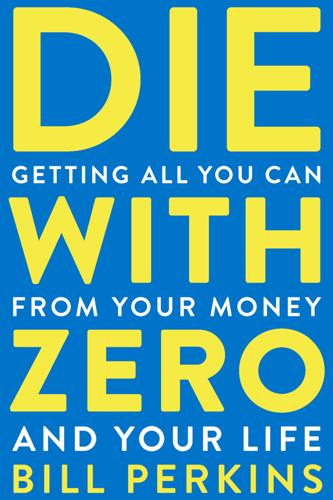
Die With Zero: Getting All You Can From Your Money and Your Life
by
Bill Perkins
Published 27 Jul 2020
Let’s say your net worth at age 25 is $2,000, and then your net worth at age 30 is $10,000. By age 35 it will most likely be some number higher than $10,000—and it will typically be higher than that at 40, and higher still at 45. The statistics on household net worth (by age of head of household) bear out this trend. Or look at the rates of homeownership, since owning your own home is a common way to build wealth. (You might not think of your home in the same way as you do about money in the bank, but there’s no denying that owning a house adds to your net worth.) Whereas only about 35 percent of Americans under 35 own their own place, the homeownership rate for Americans aged 35–44 is nearly 60 percent, and it is nearly 70 percent for Americans in the 45–54 age bracket.

The City: A Global History
by
Joel Kotkin
Published 1 Jan 2005
Noted Edgardo Contini, the prominent Los Angeles urbanist and an Italian immigrant: The suburban house is the idealization of every immigrant’s dream—the vassal’s dream of his own castle. Europeans who come here are delighted by our suburbs. Not to live in an apartment! It is a universal aspiration to own your own home.24 ARGENTINA AND AUSTRALIA This “universal aspiration” emerged early in former colonial cities in Argentina and Australia. Urbanites in these land-rich countries were quick to take advantage of peripheral locations. By 1904 Buenos Aires had spread out so far that, as one Spanish observer commented, it “was not a city, but a combination of adjoining cities.”
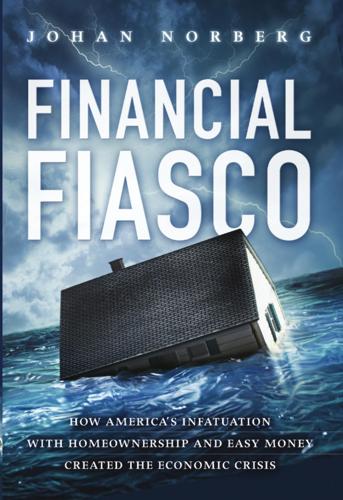
Financial Fiasco: How America's Infatuation With Homeownership and Easy Money Created the Economic Crisis
by
Johan Norberg
Published 14 Sep 2009
The number of members of various minority groups who owned their homes would be 5.5 million higher by 2010, and that would be achieved by means of Fannie, Freddie, federal loans, and government subsidies. In Bush's own words: It means we use the mighty muscle of the federal government in combination with state and local governments to encourage owning your own home.' Indeed, the Republicans endorsed virtually all the decisions made by Henry Cisneros and Andrew Cuomo-and upped the ante. Bush designed new federal subsidies for first-time buyers, whom he wanted to be covered by federal insurance even if they did not deposit a single cent as down payment.
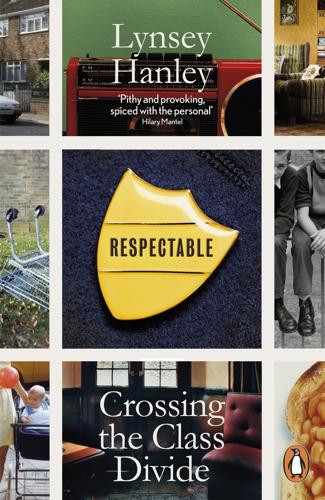
Respectable: The Experience of Class
by
Lynsey Hanley
Published 20 Apr 2016
(Anyone would think class divisions are needed in order to maintain the sanctity of the political spectrum.) Most people’s lives are sustained and at times improved through the application of large doses of pragmatism, both at an individual and a political level. One clear example of this is home ownership. The majority culture in Britain favours owning your own home, even though it has become less, not more common to do so. Many who favour renting, because of the flexibility it offers, eventually make the decision to buy a home if they can afford it simply because private renting in Britain is expensive, inconvenient and legally biased towards landlords as opposed to tenants.
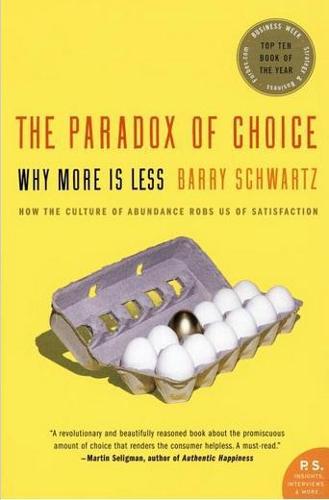
The Paradox of Choice: Why More Is Less
by
Barry Schwartz
Published 1 Jan 2004
My monthly expenses, including mortgage, taxes, insurance, and utilities, will be the same as they would be in a rental. So, in effect, for an investment of $50,000, I get to have my monthly housing costs work for me, building up my equity rather than my landlord’s. And I’m sure that I’ll get more than that $50,000 back when I sell the house.” No doubt about it, owning your own home is usually a smart investment. But what buyers leave out of this line of reasoning is the opportunity cost of putting that $50,000 into the house. What else could you do with it? You could put that $50,000 into stocks or Treasury Bills, or you could use it to finish law school and increase your earnings, or you could travel around the world and write that novel that you hope will utterly change your life.
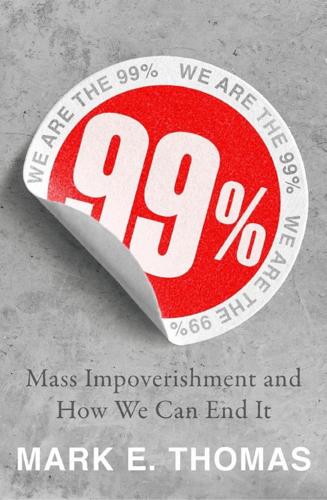
99%: Mass Impoverishment and How We Can End It
by
Mark Thomas
Published 7 Aug 2019
If you’re at a state school, you’re less likely to reach the top professions than if you’re educated privately. If you’re a woman, you still earn less than a man. If you suffer from mental health problems, there’s too often not enough help to hand. If you’re young, you’ll find it harder than ever before to own your own home. Since 2007, despite the Global Financial Crisis, real GDP per capita has grown a little – UK society as a whole is a little richer than it was a decade ago. In fact, taken as a whole, UK society is richer than it has ever been (as is the US). GDP per capita today in both countries is more than 80 per cent higher than it was in 1980 – and in both countries it has risen above the pre-crisis peak.
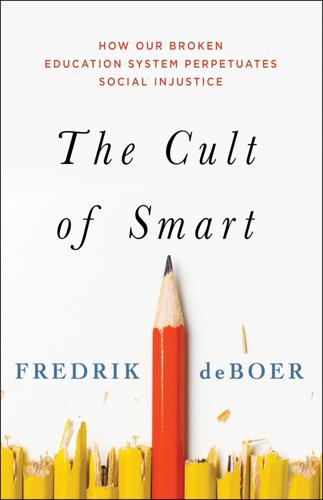
The Cult of Smart: How Our Broken Education System Perpetuates Social Injustice
by
Fredrik Deboer
Published 3 Aug 2020
But for the people lucky enough to be part of the basic Eisenhower-era bargain—high wages and labor power for workers along with overall economic growth driving increased revenues for business—life without a college education was mostly fine. It was possible in those days to forgo college and still own your own home, get a new car every few years, raise a family, and put kids through college. Today, that looks like an increasingly distant past. The economic gulf between those with college diplomas and those without them is vast. In 1965, the college wage premium (in 2012 dollars) was $7,400 a year; by 2012, that figure had risen to $17,500 a year.19 In 1979, the share of people in the top income quintile with bachelor’s degrees was about 40 percent; by 2016 it was almost 80 percent.20 In 2016 a worker with a high school diploma could expect to make $800,000 over the course of their working life.
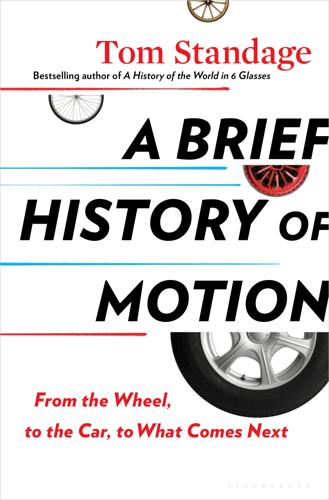
A Brief History of Motion: From the Wheel, to the Car, to What Comes Next
by
Tom Standage
Published 16 Aug 2021
Rather than trying to undo suburbanization, Berger’s approach is based on interdependence between suburbs and denser urban areas, and trying to imagine ways to make suburbs more environmentally sustainable. People like living in suburbs. At the moment, it means being dependent on a car to do almost anything, but that is widely considered a price worth paying for a bit more space and privacy, and the opportunity to own your own home. Millions of suburban dwellers have voted with their feet—or, it is more accurate to say, with their cars. 8 Car Culture The car has become an article of dress without which we feel uncertain, unclad and incomplete in the urban compound. —MARSHALL MCLUHAN, UNDERSTANDING MEDIA, 1964 THE INVENTION OF THE TEENAGER In December 1944 Life magazine introduced its millions of American readers to the customs and culture of a group of exotic creatures, under the headline “Teen-age Girls: They Live in a Wonderful World of Their Own.”
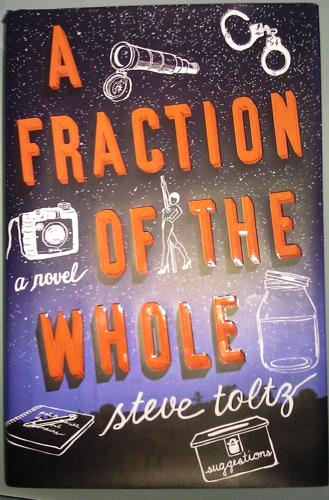
A Fraction of the Whole
by
Steve Toltz
Published 12 Feb 2008
"What's going on here, then?" Proudly, Dad told him the idea. "The Great Australian Dream, huh?" "Sorry?" "I said, you're going to pursue the Great Australian Dream. I think that's a very good idea." "What do you mean? There's a collective dream? How come nobody told me? What is it again?" "Owning your own home." "Owning your own home? That's the Great Australian Dream?" "You know it is." "Wait a minute. Haven't we merely appropriated the Great American Dream and just substituted the name of our country?" "I don't think so," Dr. Greg said, looking worried. "Whatever you say," Dad said, rolling his eyes so we both could see it.
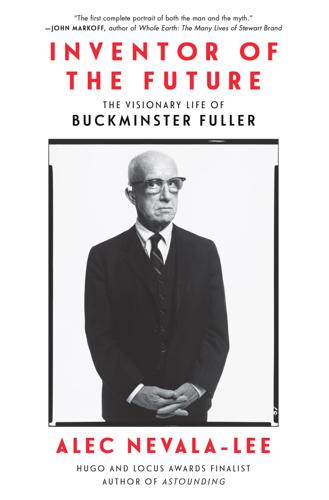
Inventor of the Future: The Visionary Life of Buckminster Fuller
by
Alec Nevala-Lee
Published 1 Aug 2022
Anne noted later that her husband’s problems with alcohol had resulted in “the only times we’ve been dreadfully upset,” and she alluded in a letter to “that nasty night in Chicago when you stayed out so long and then sort of banged me around when you came in.” * * * Shortly after his resignation, Fuller appeared at the Own Your Own Home Show at Madison Square Garden, which was part of a campaign by the United States Housing Corporation to encourage small buyers to invest in residential developments. According to Fuller, as he was putting together his exhibit, the president of the Common Brick Manufacturers’ Association “wantonly approached and destroyed” part of the display in a gesture of contempt.
…
John of Jerusalem, 427 Ortega Park Teachers Laboratory, 356 O’Ryan, John F., 149 Osawa, Eiji, 463 Osborn, Peggy, 157 Osborn, William H., 157, 160, 164 Ossoli, Giovanni Angelo, 39 Ossoli, Nino, 39 Ouroussoff, Nicolai, 468 Ouspensky, P. D., 507n111 “outside-in” globe, 189, 227 Oval Intention, 408 Own Your Own Home Show, 91 Oxfam International, 418 Oxford University, 370, 371–372 Pacific High School, 368–369, 378 Packer Collegiate Institute, 53 Paepcke, Walter, 266, 271 Page, Ruth, 133 Pahlavi, Farah, 375 Pahlavi-Nia, Shahram, 419–420 Papanek, Victor, 348 Papen, Franz von, 60 paperboard dome, 270–272, 272fig, 281, 286 Paradise of Childhood, The, 23fig Paris Peace Conference, 68–69 Park, David, 527–528n179 Park, Edwin, 179–180 Parker, Grace, 23 Parkhurst, William M., 152–153, 205, 209 Passing Show of 1913, The, 44–45 Patterson, James, 439 Pawley, Martin, 215 Paxton, Joseph, 568n342 Peabody, Elizabeth, 38 Pearce, Peter, 367, 470 Pearl Harbor, 176 Pearson, Philip C., 147, 149, 154 “peas work,” 23, 23fig Pease Woodworking Company, 295, 309 Penn, Arthur, 229, 230–231, 232–233, 316, 348, 449 People’s Computer Company, 4 Perk, Bill, 328 Perky, Scott H., 83 Peterson, Gunnar, 266–267 Phelps Dodge, 157, 159, 160fig, 163, 528n179 Philip, Prince, 411 Phillips, Kenneth, 52–53, 54 Piano, Renzo, 469 Pidgeon, Monica, 315 Piel, Gerard, 182, 187 Pierce, John B., 126 Pierce, Lincoln, 25, 31, 42, 58, 59, 61–62, 68, 87, 398 Pierce, Vassar, 25, 32 Pierce Foundation, 126, 127, 131, 133, 160, 207 Pilgrim at Tinker Creek (Dillard), 399 Pillow Dome, 369 Piñero, Emilio Pérez, 567n338 Plattsburg military camp, 57–58 Playboy, 376–377 playdome, 286 Plumbe, John, 40fig plydomes, 286 Plydomes Inc., 286 Poe, Edgar Allan, 173 polar air routes, 113, 176 polar warfare plan, 187, 192 poles, geography of, 119 Police Reserve Aviation Division, 74, 76 polio virus, 301, 317 Pope, Ted, 246 Popular Science, 355, 381 Portola Institute, 4, 352, 356 Post, Marion, 175fig Pound, Ezra, 233, 348, 375, 380, 389, 397 Poznań International Trade Fair, 286–287 Prance, Ghillean, 470 precession, principle of, 172 Preparedness Movement, 57 Presidential Medal of Freedom, 443 Price, Cedric, 559n316, 560n318 Price, Edison, 304, 306 Price Tower, 299 Princeton University, 267–268, 268fig, 279, 308 Principia Mathematica (Newton), 393 Project One, 4–5 Proud Shirtfront, The (Morley), 496n53 Pullman railway coach, 127 Pushcart Prize, 411 Queen of the Sea, The, 62 Quintet, 580n387 Rabbit, Peter, 361 race/racism, 371, 390 Racquet and Tennis Club, 151 radio, 64, 69, 115 radome, 261, 273, 275, 277fig, 278, 279, 295, 304, 305–306, 387 Ragan, Philip, 172 Rahman, Habib, 390–391 Randolph Hall, 42, 45–46 Rasch, Bodo and Heinz, 106 Ratia, Armi, 348 Rauschenberg, Robert, 233 Raymond, Dick, 352, 356 Reagan, Ronald, 443–444 Real Great Society, 373 Reconstruction Finance Corporation, 192 Reeves, Alfred, 135–136 Reeves, Emma Lucilla, 36 Reich, Charles A., 387 Reichstag dome, 468 Reid, Ogden, 153 remote learning, 313 Rendleman, John, 382 Reuther, Walter, 192, 193 Rice, John Andrew, 227 Richards, Atherton, 187 Richards, Mary Caroline, 232 Richert, Clark, 334 Richter, Donald alternate grid and, 261 American National Exhibition (Moscow) and, 301 aviation and, 454 Black Mountain College and, 238 commissions and, 440–441 Epcot and, 599n441 Fuller Research Foundation and, 246, 250 Hawaiian Village Hotel and, 284–285 Institute of Design and, 235 at Kaiser Aluminum, 283–284 pragmatism of, 248 prototypes and, 252 South Pole dome and, 387 Temcor and, 355 Rivera, Diego, 129–130, 143, 158 Rizzo, Frank, 433 Roadside Home, 503n88 Robbins, Tony, 437 Robertson, Donald W., 254–255, 285, 286 Robeson, Paul, 119 Rock Hall, 54, 62, 253 Rockefeller, David, 325 Rockefeller, Nelson, 281 Roerich, Nicholas, 123 “Romany Marie.”

Leaving Microsoft to Change the World: An Entrepreneur's Odyssey to Educate the World's Children
by
John Wood
Published 28 Aug 2006
Later that night, over a chicken curry with my friend Laura, I went into a rant about how much I hated that I could not afford a decent house in this city. Here I was about to turn 40, and I was still renting. What kind of success was a person if he was a tenant this late in life? Wasn’t it the American dream to own your own home, to live in a place that you loved and knew would be yours for decades to come? I explained my dilemma. I could afford a nice house in a place that was less expensive than San Francisco, but I felt pressure to stay in this city. So many wealthy people were here that it would be suboptimal for Room to Read to have me live somewhere else.
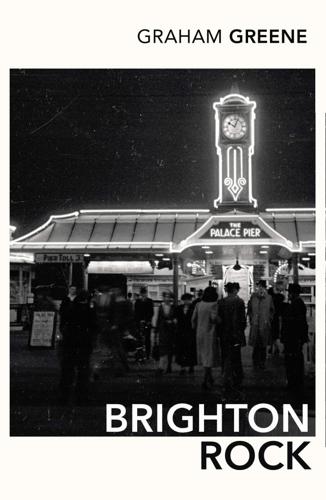
Brighton Rock
by
Graham Greene
Published 14 Jun 1983
Dallow was the only man he trusted, and he hated him as if he was his mentor. He said weakly: "Nothing will make me marry," watching the long parade of posters going by in the submarine light Guinness Is Good for You, Try a Worth*ngton, , Keep that Schoolgirl Complexion a jtong series of adjurations, people telling you things: Own Your Own Home, Bennett's for Wedding Rings. And at Billy's they told him: "Your girl's here." He went up the stairs to his room in hopeless rebellion: he would go in and say I've changed my mind, I can't marry you. Or perhaps: The lawyers say it can't be managed after all. The bannisters were still broken and he looked down the long drop to where Spicer's body had lain.
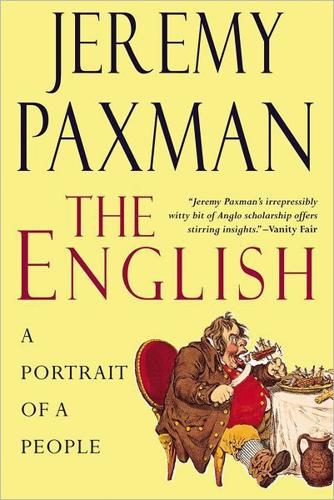
The English
by
Jeremy Paxman
Published 29 Jan 2013
It has to do with a sense that they are making an investment, that money borrowed to buy bricks and mortar is money that is working for them, unlike money spent on rent, which is working for the landlord. But it speaks to some deep sense of the importance of individual possession, too. Historically, participation in the political life of the country depended upon owning your own home. Before 1832, you could only vote if you had property valued for land tax at more than forty shillings a year; and every time the franchise was extended in the nineteenth century, the right to participate in democracy was dependent upon being a male householder. The Abbey National Bank, originally a building society, began life as two organizations, one of which, the Abbey Road, had the declared ambition of enabling young men to buy their homes, in order that they could vote, while the National Building Society additionally hoped to convince them there were better things to spend money on than drink.
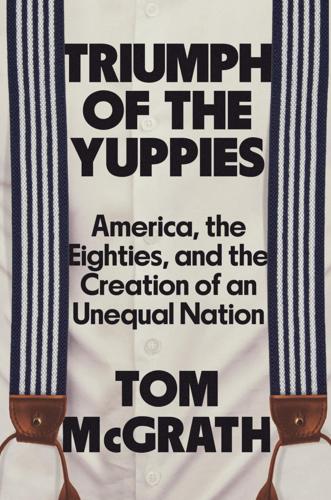
Triumph of the Yuppies: America, the Eighties, and the Creation of an Unequal Nation
by
Tom McGrath
Published 3 Jun 2024
But from a cultural perspective, there was a tremendous amount of unity. As a general rule, Americans consumed the same news and entertainment. They bought the same products. They believed in God and went to church regularly. People even seemed to share the same vision of what the good life looked like: owning your own home in the rapidly expanding suburbs. Most significantly, the country seemed to have an enormous sense of confidence, a belief in its own virtue, and an abiding faith in progress. All of it translated into a hunger to take on big challenges. Defending freedom and democracy around the world was tops on the list (which would eventually lead to the tragedy in Vietnam), but there were other examples of boldness, too.
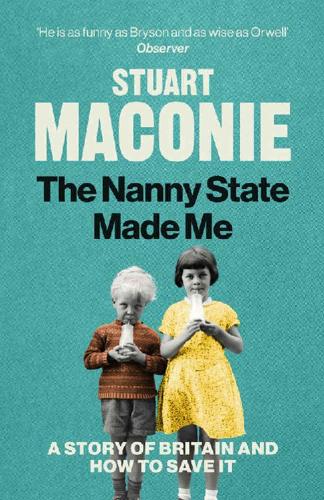
The Nanny State Made Me: A Story of Britain and How to Save It
by
Stuart Maconie
Published 5 Mar 2020
As I was writing this chapter, one Sunday morning, Pienaar’s Politics on Radio 5 Live began with luxuriantly moustachioed presenter John Pienaar asking, ‘Are you listening to this in bed, or in the bath? … then you are lucky. Fewer and fewer Britons own their own home.’ The bizarre assumption here is that if you don’t own your own home, you are therefore and by definition homeless, or some kind of couch-surfing oddity. No other country in Europe, possibly the world, has become so obsessed with home ownership, so fixated on house prices and ‘getting on the ladder’. It isn’t healthy. Indeed, it’s making us sick. ‘We’re stuck with this obsession about being a property-owning democracy,’ says Lynsey Hanley regretfully, ‘this notion that full citizenship only goes with owning property, even to the extent that you couldn’t vote once if you didn’t own property.
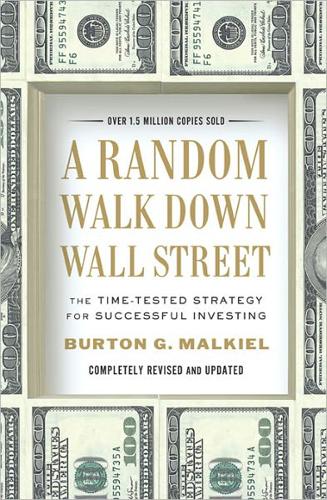
A Random Walk Down Wall Street: The Time-Tested Strategy for Successful Investing
by
Burton G. Malkiel
Published 10 Jan 2011
Because Congress wanted to encourage home ownership and the values associated with it, it gave the homeowner two important tax breaks: (1) Although rent is not deductible from income taxes, the two major expenses associated with home ownership—interest payments on your mortgage and property taxes—are deductible; (2) realized gains in the value of your house up to substantial amounts are tax-exempt. In addition, ownership of a house is a good way to force yourself to save, and a house provides enormous emotional satisfaction. My advice is: Own your own home if you can possibly afford it. You may also wish to consider ownership of commercial real estate through the medium of real estate investment trusts (REITs, pronounced “reets”). Properties from apartment houses to office buildings and shopping malls have been packaged into REIT portfolios and managed by professional real estate operators.
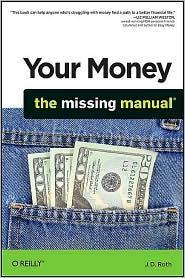
Your Money: The Missing Manual
by
J.D. Roth
Published 18 Mar 2010
When you make a little money from your hobby (see Money-Making Hobbies), that's extra income, which is part of the fun. But when you flip the switch and it becomes your sole means of making a living, some of that fun vanishes—sometimes all of it disappears. Working for somebody else is like renting an apartment, whereas working for yourself is like owning your own home; both have their rewards and drawbacks. Having to generate your own income can add a lot of stress to your life: You have to draft the business plan, find the customers, send the invoices, and pay the bills. Sure, there's pressure when you work for somebody else, too, but there's also a sense of freedom: You're not responsible for the daily decisions, and if you don't like the job, you can quit.
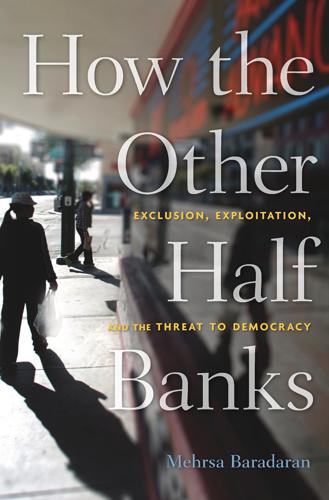
How the Other Half Banks: Exclusion, Exploitation, and the Threat to Democracy
by
Mehrsa Baradaran
Published 5 Oct 2015
Bosselman, “Suburban Zoning and the Apartment Boom,” University of Pennsylvania Law Review 111, no. 50 (1963): 1040, 1046; Kenneth A. Stahl, “The Suburb as a Legal Concept: The Problem of Organization and the Fate of Municipalities in American Law,” Cardozo Law Review 29 (2008): 1193, 1253. 129. Herbert Hoover, commerce secretary, “How to Own Your Own Home” (1923). 130. Stahl, “Suburb as a Legal Concept,” 1253; Miller v. Board of Public Works of L.A., 234 P. 381, 387 (Cal. 1925). 131. Mason, Buildings and Loans, 107. 132. Ibid., 106–108. 133. Ibid., 78. 134. Herbert Hoover, “Statement about Signing the Federal Home Loan Bank Act,” (July 22, 1932). 135.
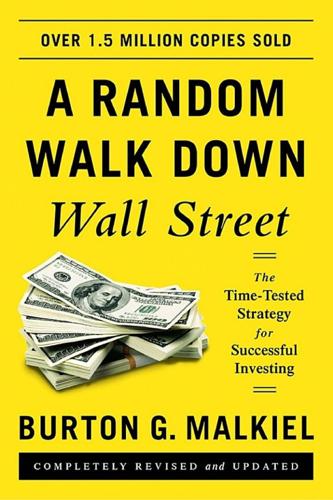
A Random Walk Down Wall Street: The Time-Tested Strategy for Successful Investing (Eleventh Edition)
by
Burton G. Malkiel
Published 5 Jan 2015
Because Congress wanted to encourage home ownership and the values associated with it, it gave the homeowner two important tax breaks: (1) Although rent is not deductible from income taxes, the two major expenses associated with home ownership—interest payments on your mortgage and property taxes—are deductible; (2) realized gains in the value of your house up to substantial amounts are tax-exempt. In addition, ownership of a house is a good way to force yourself to save, and a house provides enormous emotional satisfaction. My advice is: Own your own home if you can possibly afford it. You may also wish to consider ownership of commercial real estate through the medium of real estate investment trusts (REITs, pronounced “reets”). Properties from apartment houses to office buildings and shopping malls have been packaged into REIT portfolios and managed by professional real estate operators.
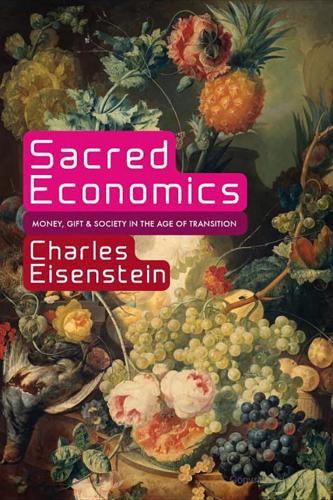
Sacred Economics: Money, Gift, and Society in the Age of Transition
by
Charles Eisenstein
Published 11 Jul 2011
Faced with the exhaustion of the nonmonetized commonwealth that it consumes, financial capital has turned to devour its own body: the industrial economy that it was supposed to serve. If income from production of goods and services is insufficient to service debt, then creditors seize assets instead. This is what has happened both in the American economy and globally. Mortgages, for example, were originally a path toward owning your own home free and clear, starting with 20 percent equity. Today few ever dream of actually one day repaying their mortgage, but only of endlessly refinancing it, in effect renting the house from the bank. Globally, Third World countries find themselves in a similar situation, as they are forced to sell off national assets and gut social services under IMF austerity programs.
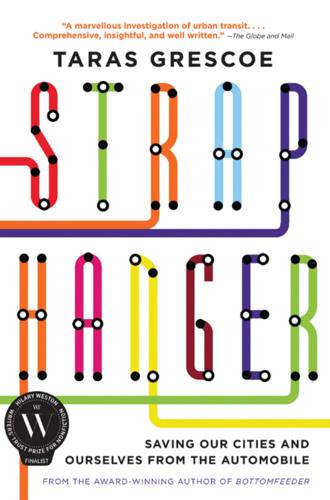
Straphanger
by
Taras Grescoe
Published 8 Sep 2011
In the place of an historic train station, he erected the Tour Montparnasse, at 59 stories France’s tallest skyscraper. He allowed the construction of the riverfront highway that still cuts Parisians off from romantic strolls on the Right Bank of the Seine. And he actively encouraged sprawl by subsidizing an own-your-own-home scheme that saw 70,000 cheaply built detached houses going up on the urban fringe. Had Pompidou not died in 1974, a webwork of urban highways would have put eight lanes of high-speed traffic within a hundred yards of the Madeleine church, and transformed Haussmann’s boulevards into urban speedways.
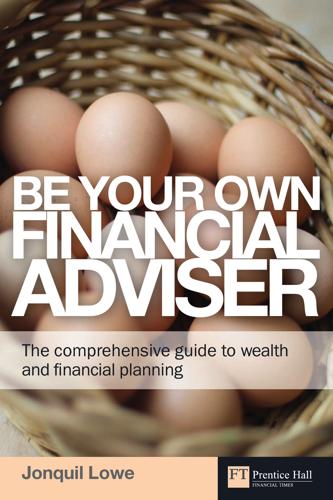
Be Your Own Financial Adviser: The Comprehensive Guide to Wealth and Financial Planning
by
Jonquil Lowe
Published 14 Jul 2010
As Figure 6.1 in Chapter 6 shows, since the 1960s, in most years, house prices have risen, often by substantial amounts. Typically property is bought with a mortgage, so gains are magnified through the effects of leverage (see Chapter 1). Not surprisingly, nearly half of the people in the UK see housing as the most significant part of their future financial security.7 If owning your own home has delivered such good returns, it is a small step to consider rental property as a superior investment. But is this view justified? The return from rental property takes two forms: income from rents and a capital gain or loss when you sell the property. According to a survey of landlords by the Association of Residential Letting Agents (ARLA), just over 6 per cent invested for the rental income, 45 per cent were seeking a combination of rent and capital growth and the remainder had capital growth as their main goal.8 ARLA tracks the return on buy-to-let investing and, despite the housing market downturn, the average annual return over the five years to summer 2009, including capital appreciation, was 9.13 per cent for landlords who bought outright and 22.18 per cent for those who bought with a mortgage and so benefited from the effects of gearing.9 While these are persuasive rates of return, some points to bear in mind are: OO Capital risk and liquidity.
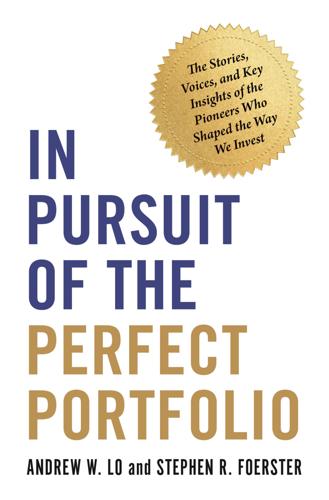
In Pursuit of the Perfect Portfolio: The Stories, Voices, and Key Insights of the Pioneers Who Shaped the Way We Invest
by
Andrew W. Lo
and
Stephen R. Foerster
Published 16 Aug 2021
Its defined contribution retirement products are connected to a global stock index and two TIPS bond portfolios with different durations, intermediate and long. Its Target Date Retirement Income Funds are similar. Merton’s own Perfect Portfolio is similar to these products but includes a hedge fund. He also owns residential real estate, which brings us to his last point: Think about owning your own home in a place where you plan to live for the indefinite future. Leibowitz’s Perfect Portfolio For Marty Leibowitz, the Perfect Portfolio is all about how much risk you can bear. If stock markets suffer a major decline, the usual course of action is to do nothing—but not always. While you want to avoid an emotional reaction of wanting to de-risk at the wrong time, if the level of risk in the market is higher than your ability to tolerate it, then you may need to reduce your equity exposure so you can sleep better at night.
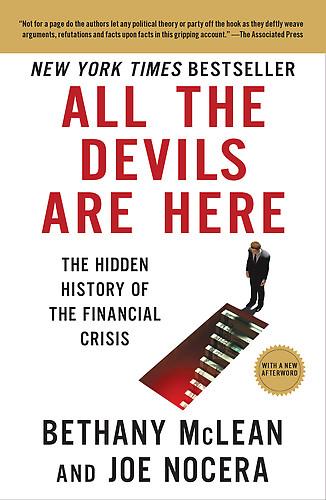
All the Devils Are Here
by
Bethany McLean
Published 19 Oct 2010
Because, like Johnson, Gramm saw the political fruit that homeownership could bear. According to a former banking committee staffer, the Republicans studied what it was that made people vote Republican. “The number one predictor of voting Republican was a job in the private sector,” he said. “Number two, and it’s a close second, is that you own your own home.” He adds, “Gramm preached that gospel to all who would listen.” Then again, maybe Fannie’s tendency, as Maloni later put it, “to throw one brick too many rather than one brick too few” wasn’t so surprising after all. When you got right down to it, there was something about the GSEs’ business model that made no sense.
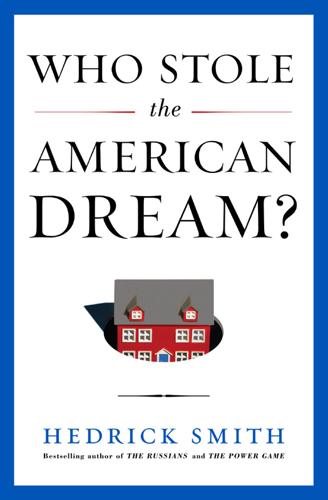
Who Stole the American Dream?
by
Hedrick Smith
Published 10 Sep 2012
Any reform of this nature faces an uphill battle as long as Corporate America, the mutual funds, and the banks are reaping huge financial benefits from the current 401(k) system and while politicians at the state and federal levels are pushing public employees away from the old lifetime pensions into 401(k)-style programs. For a people-first program, it will take a populist revolt among baby boomers—the people who face possible poverty in retirement, unless the current system is changed. CHAPTER 13 HOUSING HEIST PRIME TARGETS: THE SOLID MIDDLE CLASS Right here in America, if you own your own home, you’re realizing the American Dream…. That’s why I’ve challenged the industry leaders all across the country to get after it … by achieving the goal of 5.5 million new minority home owners. —PRESIDENT GEORGE W. BUSH, June 2002 I didn’t think I was in an economic position to buy a house.
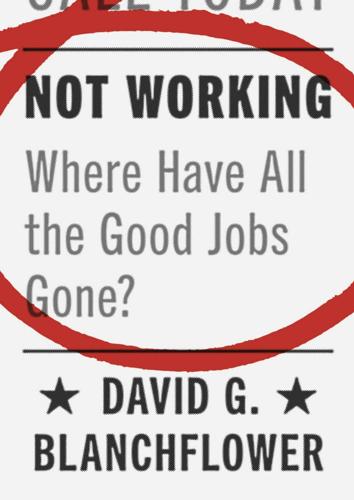
Not Working: Where Have All the Good Jobs Gone?
by
David G. Blanchflower
Published 12 Apr 2021
The U.S. homeownership rate peaked in 2004 Q4 at 69 percent while the unemployment rate peaked in 2009 Q4 at 9.9 percent exactly five years later. In 2016 Q4 the homeownership rate had fallen to 63.7 percent, back to its level in 1990. Declining homeownership may have contributed to the rising malaise. The wave of foreclosures that occurred in the Great Recession caused a decrease in well-being. The American Dream meant you could own your own home, but it increased unemployment and lowered mobility. Recent work by Hsieh and Moretti (2018) attempted to quantify the amount of spatial misallocation of labor across U.S. cities and its aggregate costs and showed they are enormous. Misallocation arises because high-productivity cities like New York and the San Francisco Bay Area have adopted stringent NIMBY restrictions to new housing supply, effectively limiting the number of workers who have access to such high productivity.
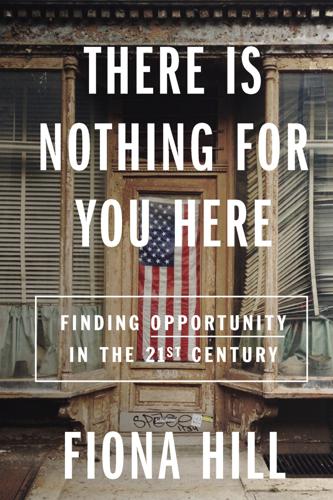
There Is Nothing for You Here: Finding Opportunity in the Twenty-First Century
by
Fiona Hill
Published 4 Oct 2021
They had made fun of us because we wanted to do things in our spare time like visit local museums and castles and read the poetry anthologies from the library. Having aspirations wasn’t normal—or perhaps it just seemed pointless when you were unlikely to escape poverty or ever leave County Durham. But owning your own home was certainly something. They were right about that—apart from the fact that Mam and Dad didn’t really own it for decades and were struggling to pay the mortgage. At St. Andrews, some of my classmates were seriously, genuinely posh. They were from the uppermost upper reaches of the upper classes—members of the British aristocracy and landed gentry, even relatives of the Queen, as well as the children of prominent members of Parliament and government ministers.
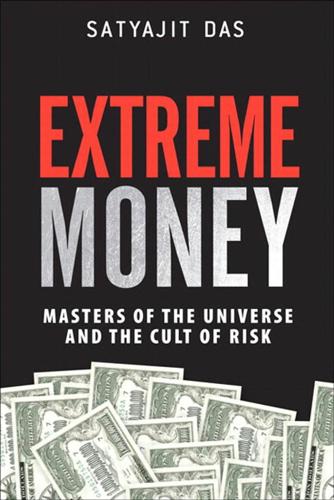
Extreme Money: Masters of the Universe and the Cult of Risk
by
Satyajit Das
Published 14 Oct 2011
President George Walker Bush, a former investment banker, set out his administration’s agenda for “an ownership society in America” clearly on December 16, 2003: “We want more people owning their own home. It is in our national interest that more people own their own home. After all, if you own your own home, you have a vital stake in the future of our country.”1 Unknown to most, the housing boom was driven primarily by strong growth in the availability of money. Banks and mortgage brokers fell over themselves to lend to new homebuyers. Innovative mortgage products enabled people traditionally denied loans to borrow.
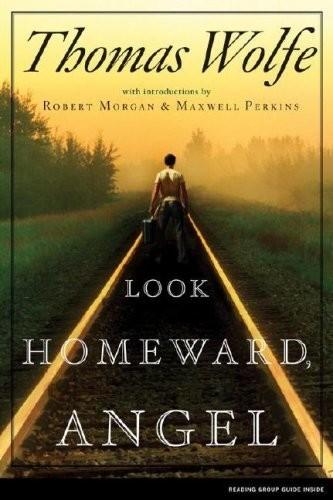
Look Homeward, Angel
by
Thomas Wolfe
Published 9 Oct 2006
You can't lose. The town is coming this way. Listen carefully. Do you hear it? Swell. The new courthouse will be built on yonder hill, the undertaker and the village bakery will occupy handsome edifices of pressed brick just above you. Oyez, oyez, oyez. What am I offered? What am I offered? Own your own home in beautiful Homewood, within a cannonshot of all railway, automobile, and airplane connections. Running water abounds within a Washingtonian stone's throw and in all the pipes. Our caravans meet all trains. Gentlemen, here's your chance to make a fortune. The ground is rich in mineral resources--gold, silver, copper, iron, bituminous coal and oil, will be found in large quantities below the roots of all the trees."
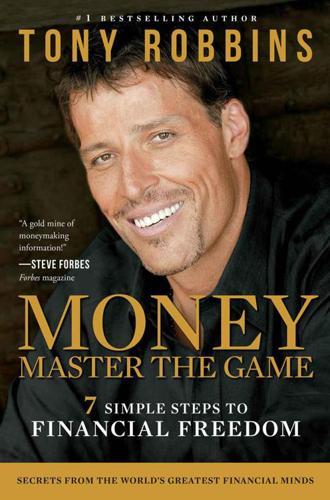
MONEY Master the Game: 7 Simple Steps to Financial Freedom
by
Tony Robbins
Published 18 Nov 2014
These are trusts that own big chunks of commercial real estate (or mortgages) and sell shares to small investors, like mutual funds. REITs trade like stocks, and you can also buy shares of a REIT index fund, which gives you a diversity of many different REITs. For growth, the Nobel economist Robert Shiller told me that you’re better off investing in REITs than owning your own home (which belongs in the Security Bucket, anyway). “Buying an apartment REIT sounds to me like maybe a better investment than buying your own house,” he said, “because there seems to be a tilt toward renting now.” That could change, of course. And, as with any investment, you’ve got to pause and think, “What am I betting on?”
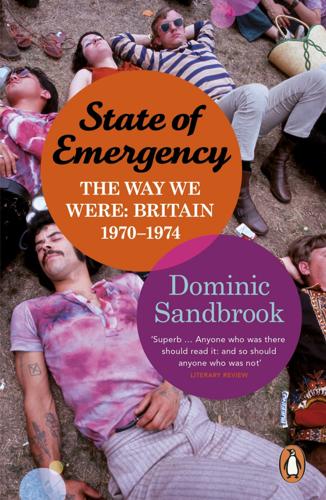
State of Emergency: The Way We Were
by
Dominic Sandbrook
Published 29 Sep 2010
On screen, pictures of Harold Wilson and James Callaghan dissolved to show the terrifying features of Michael Foot and Tony Benn, while a narrator warned that Labour would confiscate ‘your bank account, your mortgage and your wage packet’. ‘It wouldn’t take much more of a move to the Left,’ the commentary went on, ‘and you could find yourself not even owning your own home.’ On screen, a young couple’s house obligingly vanished. Not surprisingly, Wilson was furious, playing back the tape at his morning press conference to show how low the Tories had sunk. And not unreasonably the Nuffield study later called it ‘a sorry broadcast in its ethical blindness, its clumsy cascade of visual gimmicks, and its abysmal view of the electorate’s intelligence’.

Melody Beattie 4 Title Bundle: Codependent No More and 3 Other Best Sellers by Melody Beattie: A Collection of Four Melody Beattie Best Sellers
by
Melody Beattie
Published 30 May 2010
We had three stories of a dilapidated home, with a kitchen table, two chairs, a high chair, a bed, a crib, and two dressers, one of which had broken drawers. About two weeks after we moved in, a friend stopped by. We stood talking on what would have been the lawn if grass had been growing there. My friend kept repeating how lucky I was and how nice it was to own your own home. But I didn’t feel lucky, and it didn’t feel nice. I didn’t know anyone else who owned a home like this. I didn’t talk much about how I felt, but each night while my husband and daughter slept, I tiptoed down to the living room, sat on the floor and cried. This became a ritual. When everyone was asleep, I sat in the middle of the floor thinking about everything I hated about the house, crying, and feeling hopeless.
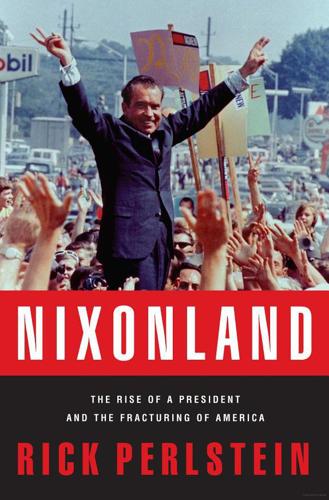
Nixonland: The Rise of a President and the Fracturing of America
by
Rick Perlstein
Published 1 Jan 2008
Black workers did not. Through no agency of their own, Chicago’s white ethnics were the beneficiaries of an urban-planning miracle. The National Association of Real Estate Boards—the same group that turned itself into a political machine to lobby against open occupancy in 1966—launched an “Own Your Own Home” crusade in the 1920s to coax families into putting down payments on single-family houses of their very own; simultaneously, idealistic reformers coming out of England’s Arts and Crafts movement devised a new form of cheap and felicitous housing unmatched in the history of the industrial working class: the urban “bungalow.”
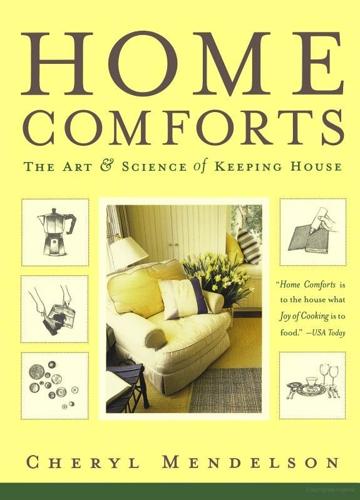
Home Comforts: The Art and Science of Keeping House
by
Cheryl Mendelson
Published 4 Nov 1999
The Court reached a different conclusion, however, when asked to consider an East Cleveland, Ohio, zoning ordinance that, because of the way it defined “family,” did not permit a grandmother, her son, and two grandsons who were merely first cousins (not brothers) to live together. It struck down the ordinance as an impermissible intrusion upon the family. Rules of the House: Co-ops and Condominiums. Some of your rights to do as you like in and with your home depend on the nature of your ownership. You have the greatest freedom when you own your own home. Landlords of rental properties are in a position to impose special restrictions on you, but these usually must be spelled out in your lease agreement. Cooperative and condominium owners agree to abide by rules that may be highly restrictive. Condominiums and cooperatives, for example, are permitted in some jurisdictions to forbid you to have long-term guests or roommates, or to operate a bed-and-breakfast in your home.
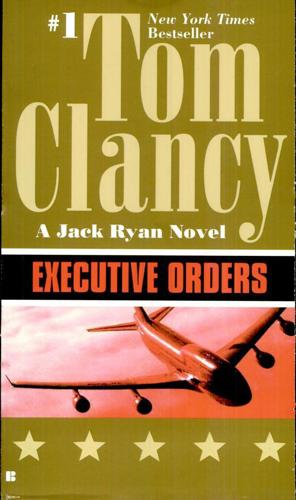
Executive Orders
by
Tom Clancy
Published 2 Jan 1996
If you do not give the right measure of power to the right kind of people, then the wrong people will take more power than they need and they will use it the way they want, not the way you want. Ladies and gentlemen, that's why your duty tomorrow to elect the right people to serve you is so important. Many of you operate your own businesses and you hire people to work for you. Most of you own your own homes, and sometimes you hire plumbers, electricians, carpenters to do work for you. You try to hire the right people for the work because you pay for that work, and you want it done right. When your child is sick, you try to pick the best physician-and you pay attention to what that doctor does and how well he or she does it.